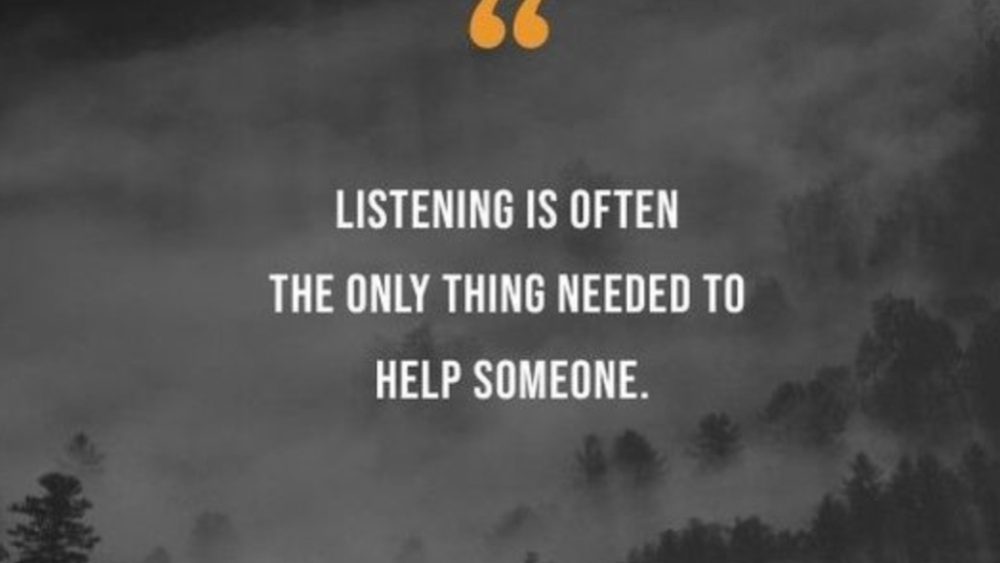Listening is a vital part of communication and often we may be accused of not listening. While hearing is an involuntary, physical act, listening requires hearing and combining psychological involvement with the person who is talking. True listening requires concentration and energy, setting aside our own thoughts and agendas and also not making judgements or evaluations.
Effective listening involves the following:
- VERBAL MESSAGES – attention to the words used
- PARAVERBAL MESSAGES – attention to how they are said
- NON-VERBAL MESSAGES – the body language of the speaker
Here are some basic principles for effective listening that will help the speaker feel listened to:
- Stop talking – don’t talk, listen to what they are saying, do not interrupt, talk over them or finish their sentences for them. Men in particular are fixers, we want to jump in with our best solutions when all that is wanted is for us to just listen.
- Prepare to listen – clearing your mind of all the other thoughts that can easily distract you, helps to concentrate on the speaker.
- Encourage the speaker – nodding, maintaining eye contact (without staring) and using words that help the speaker to feel at ease will encourage them to continue and shows you are interested.
- Focus – remove distractions like the TV or any other noises. A relaxed environment will help.
- Empathise – be open-minded. Let go of preconceived ideas which helps to empathise with the speaker. Acknowledge a different point of view using statements like “I can understand how you may feel that way, but this is how I feel about …”
- Patience – allow the speaker to formulate what it is they want to say. A pause of any length doesn’t mean the speaker has finished. Sometimes they may be having difficulty expressing their thoughts. Let them continue in their own time without interrupting.
- Avoid prejudice – it can be easy to become irritated by the person’s mannerisms like stuttering, accent, constant fidgeting or pacing while talking. Everyone has a different way of speaking. Concentrate on what is being said and try to ignore the style of delivery.
- Be reflective – re-stating the speaker’s words into your own words seeks to clarify what was said and also shows you are listening and are interested. Reflecting how they may be feeling also does the same, i.e., “I can see you are frustrated about…”, summarising the conversation in your own words but be careful not to misrepresent what was said.
- Watch for the non-verbals – noting inconsistencies between the verbal and non-verbal messages. Body language can reveal more than words, you may be listening to someone articulating that all is well but his body language of gritted teeth or tears welling in his eyes tells a different story.
When people talk, listen completely. Sometimes just listening effectively is what is required without jumping in to solve a problem. This is at the heart of our core message… before it all gets too much… Talk to a Mate®!! Nothing is more important than people and listening is how we check in and maintain the wellbeing of ourselves and those around us.
By The Regional Men’s Health Initiative




Comments are closed.